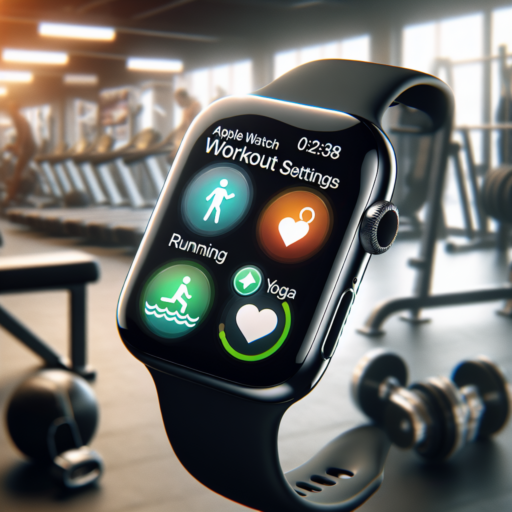No se han encontrado productos.
What is the use of GPS in fitness tracker?
The Global Positioning System (GPS) has significantly transformed how fitness enthusiasts track their outdoor activities. In the context of a fitness tracker, GPS plays a crucial role in offering precise data concerning an individual’s location during physical activities like running, cycling, or hiking. This ensures that the data collected, such as distance covered and pace, is accurate and reliable, enabling users to effectively monitor their progress and set realistic fitness goals.
One of the key benefits of having a GPS-enabled fitness tracker is the ability to map out your routes. This feature not only adds an element of safety by sharing your location with friends and family but also allows for the exploration of new paths without the fear of getting lost. Furthermore, GPS functionality in fitness trackers aids in the detailed analysis of performance data. By dissecting your route segment by segment, you can identify specific areas that may require improvement, such as elevation gains or difficult terrains that affect your speed and stamina.
Moreover, the integration of GPS in fitness trackers enriches the experience by adding context to your workout summaries. With GPS data, the tracker can offer insights into the environmental effects on your performance, such as how weather conditions or altitude might have impacted your workout. This comprehensive overview aids in tailored training adjustments, pushing for enhanced performance outcomes.
Do I need GPS on a fitness tracker?
Deciding whether you need GPS on a fitness tracker depends on your fitness goals and activities. For runners, cyclists, and anyone who enjoys outdoor workouts, GPS functionality can be invaluable. It provides precise information about your pace, distance, and the route you’ve taken, enhancing the accuracy of the data collected during your workouts. Moreover, GPS-enabled fitness trackers often come with additional features tailored towards outdoor activities, making them a versatile tool for fitness enthusiasts.
However, it’s important to consider the implications of having GPS on your device. Devices with GPS tend to be more expensive and can have a shorter battery life compared to those without. This means you’ll need to charge them more frequently, which could be a drawback for those who prefer low-maintenance gadgets. Additionally, if your primary workouts occur indoors, or you’re mainly interested in tracking steps, sleep, and heart rate, a fitness tracker without GPS might serve your needs while saving you money.
In summary, while GPS can significantly enhance the functionality and accuracy of fitness trackers for outdoor activities, it’s not a one-size-fits-all feature. Evaluate your specific fitness needs and preferences to determine if the benefits of GPS technology align with your workout regimen.
Which fitness band has a GPS tracker?
When it comes to tracking your physical activities with accuracy, especially your routes during running or cycling, a fitness band with a GPS tracker is essential. These devices not only monitor your health metrics but also provide precise navigation data. Among the plethora of fitness bands available, identifying ones equipped with a GPS tracker can seem daunting. The key is to look for bands that offer a balance of fitness tracking capabilities and reliable GPS performance.
The Importance of GPS in Fitness Bands
Having a GPS tracker in a fitness band significantly enhances the tracking of outdoor activities. It allows for detailed mapping of your routes, pace, and even elevation changes. This is particularly crucial for athletes and fitness enthusiasts who rely on accurate data to monitor their progress and performance. Moreover, GPS-equipped bands offer the convenience of mapping your runs or rides without needing to carry your phone.
Top Features to Look for in a GPS-equipped Fitness Band
- Accuracy: The primary feature that distinguishes a superior fitness band is its GPS accuracy. It should accurately track your location and distance traveled without significant lag or inaccuracy.
- Battery Life: GPS can be power-intensive. Opt for a band that offers a long-lasting battery life even when the GPS function is in use to avoid mid-activity power-offs.
- Water Resistance: Since outdoor activities often expose you to various elements, selecting a water-resistant band will ensure your device remains functional regardless of weather conditions.
In conclusion, while numerous fitness bands claim to offer GPS tracking, focusing on accuracy, battery life, and water resistance will guide you to the model best suited to your active lifestyle. Whether you’re an avid runner, cyclist, or outdoor enthusiast, the right fitness band with GPS tracking is out there waiting to become your next workout companion.
Which fitness tracker has the most accurate GPS?
In the quest for fitness, accuracy is key, especially when it comes to tracking our outdoor activities. GPS-enabled fitness trackers have become indispensable for athletes and fitness enthusiasts alike. Yet, amidst a sea of options, determining which fitness tracker has the most accurate GPS can feel like navigating through a dense fog. Accuracy in GPS tracking is crucial for measuring performance metrics such as distance covered, pace, and elevation changes accurately. Thus, selecting a device that boasts superior GPS precision is paramount for those taking their training seriously.
Various factors contribute to the GPS accuracy of a fitness tracker, including the quality of the GPS module, the integration of multiple satellite systems (like GPS, GLONASS, Galileo, and BeiDou), and how the device processes and updates data. Some of the top contenders in the market are known for their meticulous attention to enhancing GPS precision. Brands like Garmin, Suunto, and Polar frequently emerge as frontrunners in discussions about GPS accuracy. These brands invest in advanced technology and software algorithms that minimize GPS discrepancies during runs, hikes, and other outdoor activities.
Moreover, it’s worth noting that the environment plays a significant role in GPS performance. Urban canyons, dense forests, and proximity to tall structures can affect signal reception. High-end fitness trackers often incorporate additional features to mitigate these issues, such as barometric altimeters for elevation data and accelerometers to compensate for lost GPS signals. Consequently, the most accurate GPS fitness tracker must not only excel in hardware but also demonstrate robustness in varied environmental conditions.



